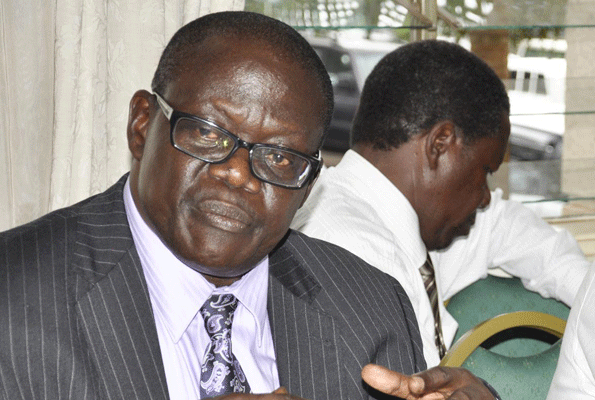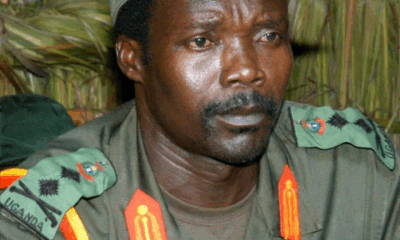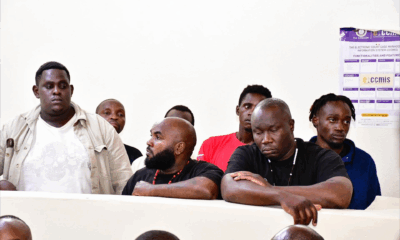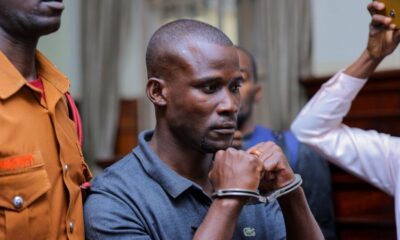Law
Court Acquits Byandala, Convicts Senkeeto in Katosi Road Fraud Appeal
The long-awaited judgment in the high-profile Mukono–Kyetume–Katosi/Kisoga–Nyenga road saga has once again thrust questions of accountability, due diligence, and ministerial oversight into the public spotlight. Delivered by the Court of Appeal in Consolidated Criminal Appeals No. 91 and 112 of 2018, the ruling dissected one of Uganda’s most controversial road procurement scandals, implicating senior officials of the Uganda National Roads Authority (UNRA), former Works Minister Eng. Abraham Byandala, and businessman Apollo Senkeeto, among others.
A Road Project Shrouded in Fraud
The case arose from the award of a multi-billion-shilling contract to Eutaw Construction Company Inc., purportedly based in Mississippi, USA, to upgrade the Mukono–Kyetume–Katosi/Kisoga–Nyenga road. The project quickly turned into a web of forged guarantees, irregular payments, and a massive loss to government coffers. The Inspectorate of Government (IGG) initiated criminal proceedings after investigations revealed that Senkeeto, posing as Eutaw’s country representative, forged multiple performance and advance payment bonds to secure a staggering advance payment of UGX 24.7 billion, which was subsequently misappropriated.
The Accused and Their Fates
- Eng. Abraham Byandala was charged with abuse of office and disobedience of lawful orders, but was acquitted. The Court of Appeal upheld that as minister, he had statutory supervisory authority over UNRA and did not act arbitrarily when he directed that the contract be signed, even before due diligence was concluded.
- Eng. Berunado Ssebugga Kimeze (UNRA’s former Acting ED), Joe Ssemugooma (Director of Finance and Administration, UNRA), and Marvin Baryaruha (Legal Director, UNRA) faced charges of abuse of office and causing financial loss. Only Ssemugooma was convicted, though his appeal argued that he had simply signed off on securities verified by his juniors and Housing Finance Bank.
- Apollo Senkeeto was convicted of theft, uttering false documents, and obtaining execution of securities by false pretences, though he appealed on the grounds that part of the money was actually spent on preliminary works and equipment.
- Isaac Mugote, a banker, was accused of aiding the fraud by confirming false guarantees, but he was acquitted after evidence showed inconsistencies in the electronic mails relied upon.
- Wilberforce Senjako, another UNRA official, was convicted of corruption but acquitted of causing financial loss, with the court noting that while his actions were irregular, actual loss was not sufficiently proven.
The Appeal Battles
The IGG, dissatisfied with several acquittals, appealed seeking convictions against Byandala and others. On the other side, convicts, including Ssemugooma, Senkeeto, and Senjak,o appealed against their convictions and sentences.
Key issues revolved around:
- Due diligence: The court found that procurement law allowed due diligence checks “at any time during the procurement process,” including after contract signing. This interpretation shielded Byandala and others from abuse of office convictions.
- Financial loss: While billions were advanced to Eutaw, the court held that actual loss was not conclusively proven since some roadworks were carried out, and no engineering audit established precise losses.
- Forgery and theft: Against Senkeeto, however, the evidence of forged guarantees and misappropriation was overwhelming, sustaining his convictions.
Implications
The ruling highlights the fragile safeguards in Uganda’s public procurement system, where a single forged document and hasty ministerial directive can trigger colossal financial risks. It also underscores the legal challenges in proving “financial loss” in corruption cases, especially when partial work is done or funds are diverted in complex ways.
For the public, the case is a sobering reminder of the billions lost in road sector scandals, with ordinary citizens left waiting for roads that never materialise. For institutions like the IGG and UNRA, it reinforces the need for tighter due diligence, stronger contract management, and credible forensic audits in corruption prosecutions.
The Mukono–Katosi road remains a symbol of how grand infrastructure projects can be captured by fraud, leaving the courts to navigate the thin line between political accountability, bureaucratic negligence, and outright criminality.
Comments

























